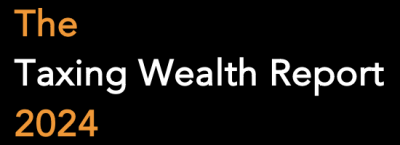Background
Capital gains tax was introduced in the UK in 1965. As was made clear by the Rt Hon James Callaghan MP, the Chancellor of the Exchequer at the time, the aim was to ensure that income could not be recategorised as capital gains and so escape from either the income tax system or fall out of taxation altogether. The tax was as a consequence always as much an anti-avoidance measure as it was a revenue-raising tax.
The tax rate in operation from April 2020 to April 2024 have been as follows:
Where two rates of tax are shown the lower one is the rate charged on the disposal of all assets except properties and the higher one is that due on property.
The problems
There are considerable problems with capital gains tax when it comes to the taxation of wealth. Examples include:
- The fact that those individuals who make capital gains have an additional personal allowance above that provided for income tax purposes, even after the reduction in 2023 noted above. This reduces their overall tax liabilities, inequitably.
- Capital gains are charged to tax at approximately half the tax rate used on the income of the same person in the same year.
- There are major exemptions from capital gains tax. This most especially applies to a person’s principal private residence, which is exempt from tax. This has caused considerable distortion within the UK housing market and with regard to the distribution of wealth in the UK.
- Capital gains tax is not charged on death and the gifts resulting from it, although it is on lifetime gifts.
- Some exemptions from capital gains tax, such as business asset disposal relief, which is still popularly known as entrepreneur’s relief, make no economic sense.
The recommendations made in the Taxing Wealth Report 2024 are designed to tackle some of these issues.
Recommendations
Capital gains tax was always meant to discourage tax avoidance and tax planning, and yet it has become the epicentre of a major tax planning industry precisely because of the issues noted above. The disparities in tax rates, allowances, and exemptions noted have created what are technically called significant tax spillovers, which are themselves the subject of a separate note within the Taxing Wealth Report 2024. The recommendations made in this report are intended to reduce these tax spillover effects.
The recommendations made include:
- Charging capital gains at income tax rates.
- Making capital gains, subject to an investment income surcharge for income tax purposes.
- Reducing the annual exemption for gains, not subject to tax to bring that exemption into line with similar exemptions offered for the purposes of creating administrative ease within the income tax system.
- Abolishing capital gains tax entrepreneur’s relief.
- Creating a capital gains tax charge on the lifetime gains that a person has made on their principal private residence, with that charge to be paid on their final disposal of the principal private residence, whenever that might arise.
Future work
In the case of some of the taxes refer to in the Taxing Wealth Report 2024 there would be obvious long-term benefit to replacing the tax with one that is socially, economically and administratively more efficient. Taxes where this might be appropriate, include:
- national insurance,
- council tax, and
- inheritance tax.
There is not, however, an alternative to having a capital gains tax within the comprehensive range of taxes that any modern democracy requires if a jurisdiction is to impose fair taxation upon the people to whom it is responsible. As a result, there is no suggestion made here for a future programme of work with regard to capital gains tax because the most desirable reforms are already noted, above.
Detailed proposals
- Aligning capital gains tax and income tax rates in the UK, which might raise more than £12 billion in additional tax a year.
- Recreating an investment income surcharge in the UK tax system, which might raise up to £18 billion of extra tax revenue a year.
- Abolishing capital gains tax entrepreneur’s relief, which might raise approximately £2.2 billion of additional tax a year.
- Reducing the annual exempt amount of capital gains a person might enjoy a year to £1,000 might raise at least £0.4 billion of additional tax





